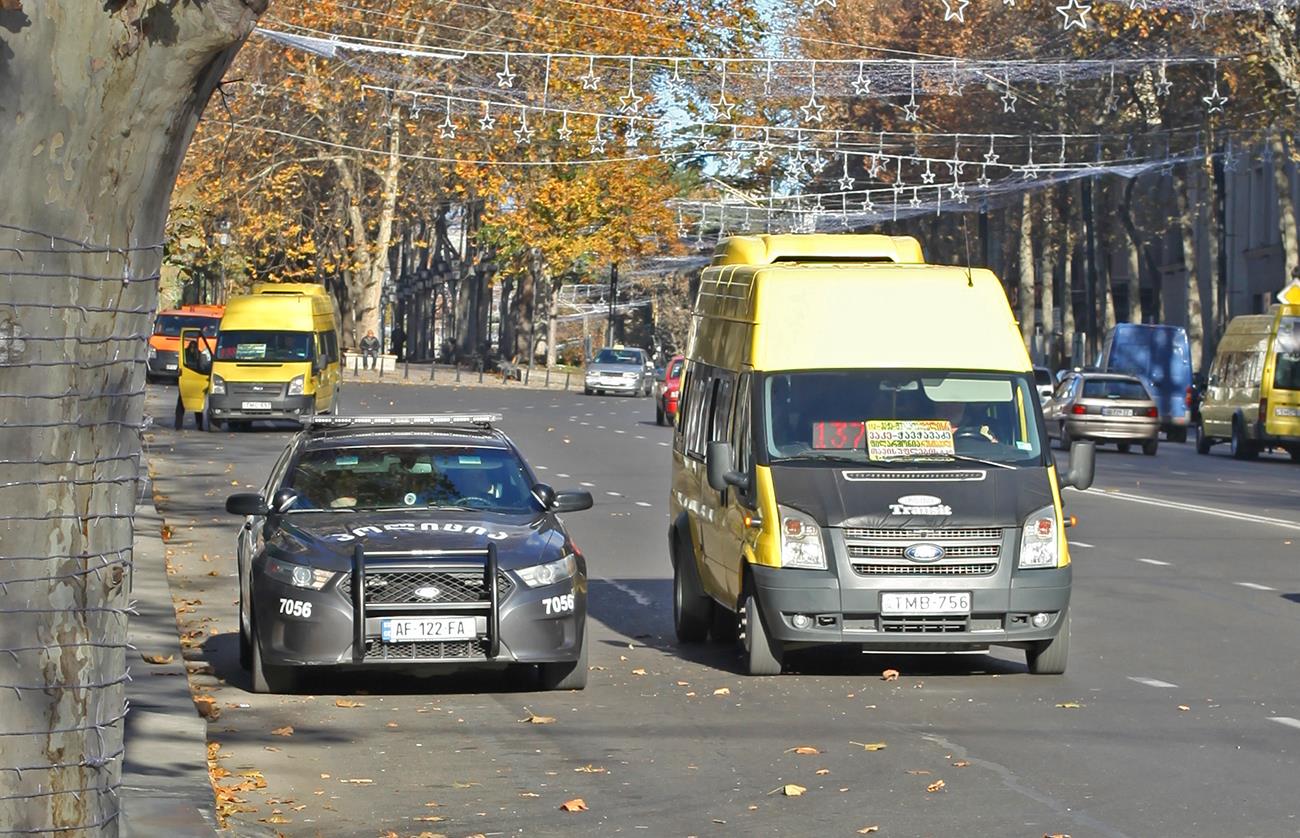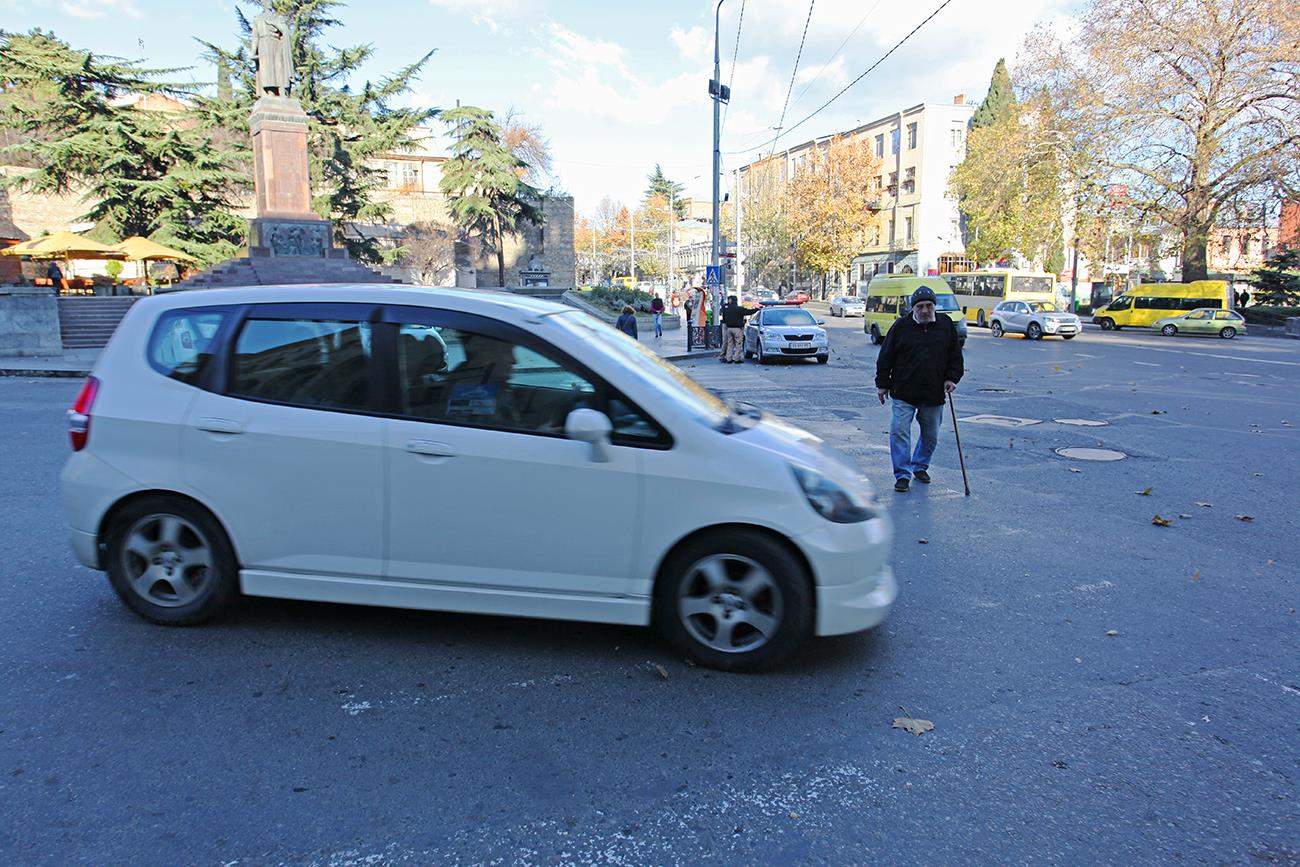Georgia declares war on road traffic offences
Georgia is in for a series of legislative changes that are, though rather hard on car owners, meant to make Georgian roads safer. These are the innovations and reasons behind them:
Right-hand-drive cars will be banned
As of March 2016, a ban on registration of RHD vehicles is coming into effect, which means Georgians who have planned to purchase such a car next year may have already lost their chance to do so. Being a lot cheaper than their left-hand-drive counterparts, RHDs are very popular in Georgia and account for as much as 50 percent of the country’s car imports. In most European countries, the RHD segment is rarely more than 10 percent. Initiators of the ban say that in a country where right-hand traffic is the norm having so many RHD cars on the roads is very unsafe.

Roads will be secretly patrolled
Quite interesting, even if somewhat controversial, is the proposal to set up undercover traffic police units. They will drive unmarked vehicles – such as a truck, a bread delivery van or even a school bus, and use cameras to record incidents of vehicles violating traffic rules. Citations will be mailed to the violators.
Deputy minister of interior Shalva Khutsishvili explained to JAMnews some of the reasoning behind the innovation: “Drivers know where speed cameras are located and only slow down when approaching them. We want to make these cameras portable. Drivers should be aware that they are watched not only when they pass under the speed cameras or when they see the rotating lights of a police car. They will be controlled all the time.

Driver license test will get more complicated
The major complication is that aspiring drivers will have to take the practical driving test in urban areas, rather than on a testing ground. Instead of merely carrying out the standard set of maneuvers (reverse parking, moving off uphill, zigzag driving, etc.) learnt – over the course of five to ten driving lessons – from their private instructor, the examinees will have to demonstrate to the examiner an ability to drive in actual road and traffic conditions. Steering through Georgian roads is a daunting challenge (even for some experienced drivers, as well as for newbies), which is why many newly-licensed drivers continue taking private driving lessons after they have easily maneuvered through their exam on the testing ground to learn the ropes of real-world driving.
But in the long run, some of them never actually take the wheel, discouraged and scared by the chronic chaos reigning on the roads.
“Presently, I cannot specify [when these new rules of testing will be introduced], but they will be introduced without fail, as this is one of the commitments Georgia made to the EU under the Association Agreement, the deputy minister said.

Life of your license will depend on your competence as a driver
The ministry of interior of Georgia is putting a penalty points system in place as from January 1, 2016. This is how it will work: every year any driver will be allocated 100 points, and if they violate a traffic rule they will not only be fined, but also have a certain number of points subtracted from their yearly allowance. The more serious the offences, the faster the points will go. Once there are no points left, the driving license becomes invalid, and the driver will have to pass the exam again to regain the right to drive.

Do we need these changes?
We certainly do. Judging by some statistics, Georgia could do with stricter traffic laws. One local organization, Georgia Alliance for Safe Roads, reports that more than 500 Georgians were killed by cars last year. Motor vehicle traffic deaths in Georgia are at least twice as many as in EU countries.
Even the most basic rules, like giving way to pedestrians at zebra crossings, are commonly disregarded by Georgian motorists. In a survey conducted by the Alliance, 76 percent of the polled drivers admitted they never stopped for pedestrians; 58 percent owned up to violating traffic rules on a regular basis; 60 percent said they often exceeded the speed limits. At that, only 28 percent said they had been actually fined for speeding.
It is probably fair to say that Georgian pedestrians are often no better than their motorized counterparts: 53 percent of the polled admitted to jaywalking.





















